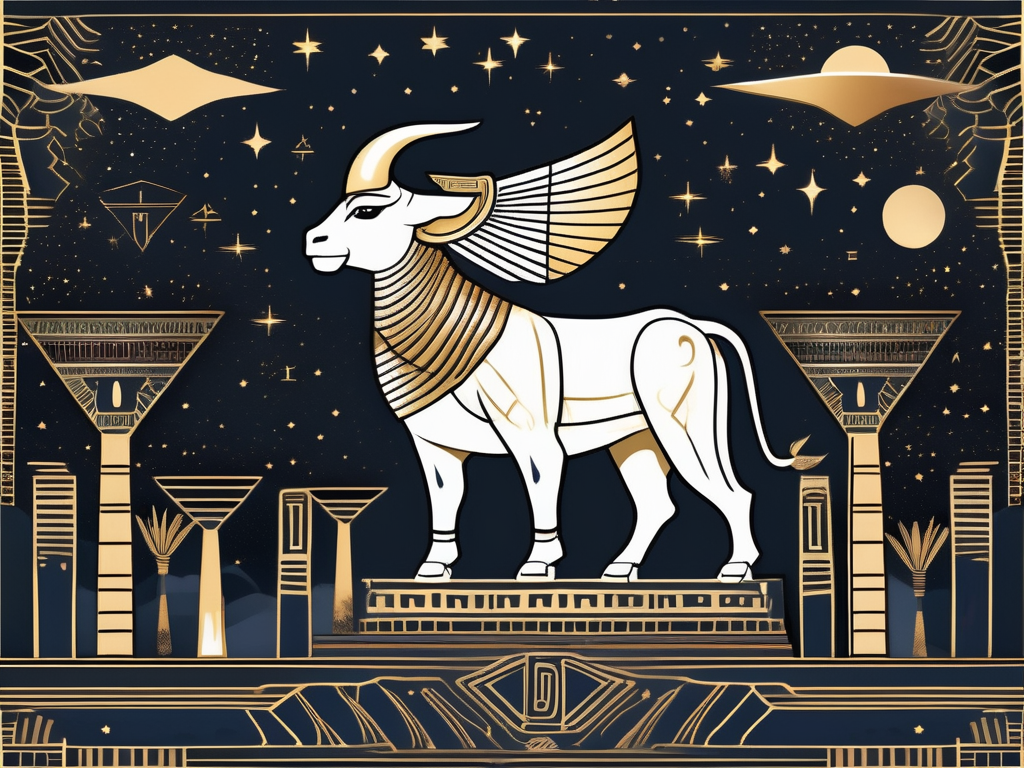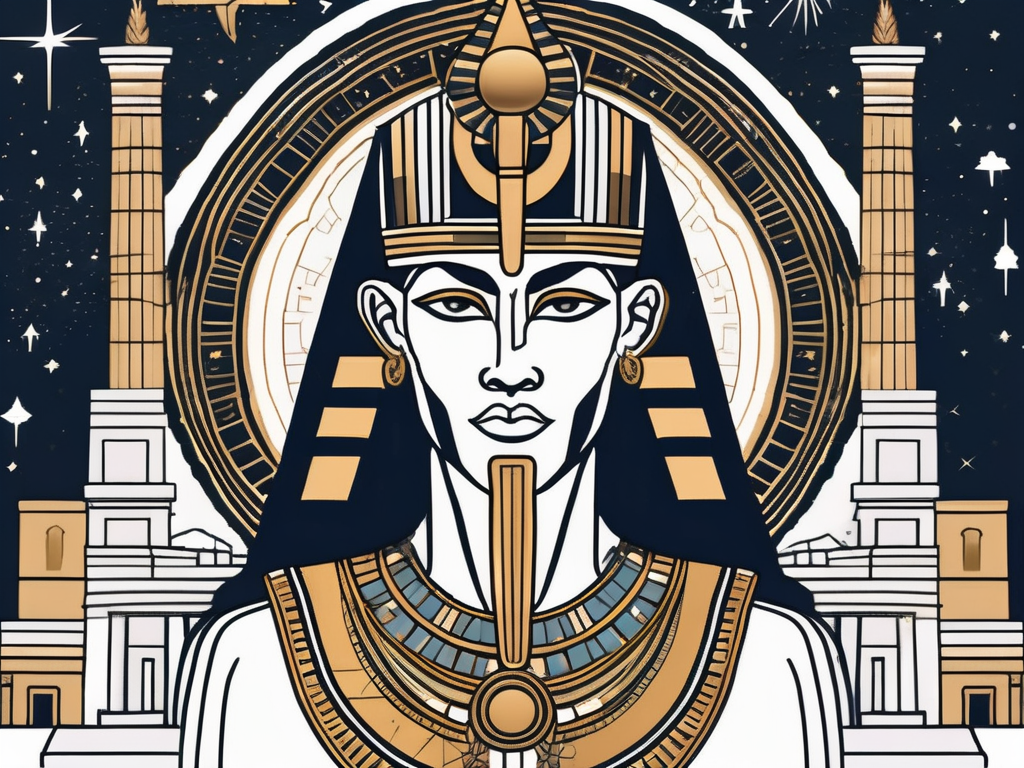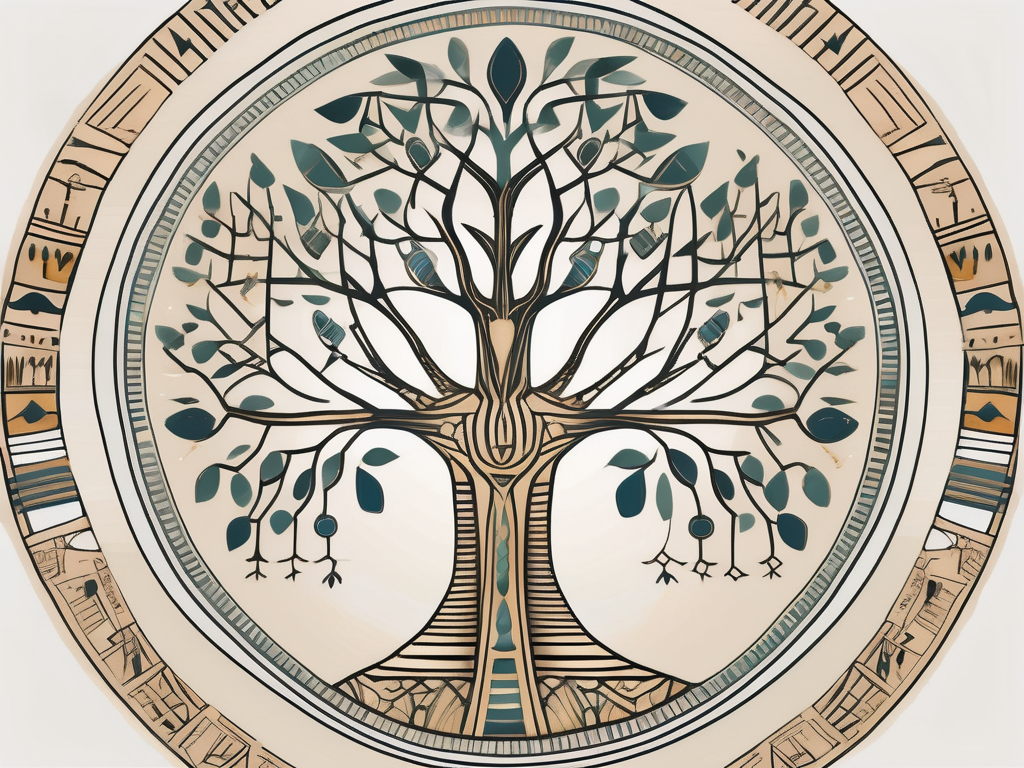Sky Bull, also known as the Egyptian god Amun, is a fascinating deity with a rich mythology that dates back thousands of years. In this article, we will dive deep into the origins, symbolism, worship, and influence of Sky Bull, shedding light on his importance in ancient Egyptian culture and his enduring relevance in modern times.
Understanding the Origins of Sky Bull
Sky Bull has a long and complex history, intertwined with the creation myth of ancient Egypt. According to the Egyptians, the world was brought into existence by Atum, the primal deity, and it was from Atum’s self-creation that Sky Bull emerged. Sky Bull represented the hidden and mysterious aspects of creation, often depicted as a man with a ram’s head to symbolize his association with fertility and power.
The ancient Egyptians believed that the universe was created through a process of self-generation by Atum. Atum was considered the first god, the one who brought everything into existence. From his self-creation, the divine energy flowed, giving birth to the celestial beings and the physical world. Sky Bull, as a manifestation of this divine energy, played a significant role in the Egyptian cosmology.
The Creation Myth and Sky Bull’s Role
In the Egyptian creation myth, Sky Bull played a crucial role in maintaining order and balance in the universe. He was believed to have created the sun and the moon through his breath, and his powerful voice echoed through the sky, channeling divine energy into the world. Egyptians believed that he was the hidden force behind all life and the ultimate source of power.
According to the myth, Sky Bull’s breath gave life to the sun and the moon, which were essential celestial bodies in the Egyptian worldview. The sun represented light, warmth, and growth, while the moon symbolized the cyclical nature of life and the passage of time. Sky Bull’s breath infused these celestial bodies with divine energy, ensuring their continuous movement and the perpetuation of life on Earth.
Sky Bull in Ancient Egyptian Texts
Ancient Egyptian texts reveal the deep admiration and reverence the Egyptians held for Sky Bull. He was often referred to as “King of the Gods” and considered to be a protector of pharaohs and a champion of the people. These texts also depict Sky Bull as a fearsome warrior who fought alongside the pharaohs in their battles, ensuring their victories and protecting Egypt from various threats.
The ancient Egyptians believed that Sky Bull actively intervened in the affairs of humans, particularly in times of crisis. He was seen as a guardian deity, offering protection and guidance to the pharaohs, who were believed to be his earthly representatives. Sky Bull’s presence on the battlefield was believed to inspire courage and strength in the Egyptian armies, ensuring their triumph over their enemies.
Furthermore, Sky Bull was also associated with fertility and abundance. His ram’s head symbolized his connection to the natural world and his ability to bring forth new life. The Egyptians believed that Sky Bull’s blessings ensured the fertility of the land, the success of agricultural endeavors, and the prosperity of the people.
In conclusion, Sky Bull’s origins can be traced back to the creation myth of ancient Egypt. As a deity associated with fertility, power, and creation, he played a vital role in the Egyptian cosmology. From his breath, the sun and the moon were brought into existence, and his powerful presence protected and guided the pharaohs and the people of Egypt. The reverence and admiration for Sky Bull can be seen in the ancient Egyptian texts, where he is depicted as a mighty warrior and a benevolent force of nature.
The Symbolism of Sky Bull
The symbolism surrounding Sky Bull is vast and multi-faceted. As a symbol of power and fertility, he represented the life force that permeated the universe. Sky Bull was associated with the bull due to its strength and virility, but he was also linked to the ram, a sacred animal in Egyptian culture known for its protective qualities.
One of the key aspects of Sky Bull’s symbolism is his role as a protector of fertility. In ancient Egyptian society, fertility was of utmost importance, as it ensured the continuation of life and the prosperity of the community. Sky Bull’s association with the bull, a creature known for its strength and ability to procreate, made him a powerful symbol of fertility. He was often invoked during rituals and ceremonies celebrating the natural cycles of life, such as childbirth and agricultural harvests.
Furthermore, Sky Bull’s symbolism extended beyond the physical realm. The Egyptians believed that by invoking his name and wearing his amulets, they could tap into his divine strength and protection. This belief in the power of Sky Bull’s symbolism led to the widespread use of his image in amulets, jewelry, and other protective talismans. These objects were believed to bring good fortune, ward off evil spirits, and provide a sense of security to those who possessed them.
Sky Bull as a Symbol of Power and Fertility
As the god of fertility, Sky Bull held a significant place in Egyptian mythology and religious practices. His association with power and virility made him a revered figure, and his presence was often sought after in times of need. The Egyptians believed that by honoring Sky Bull and paying tribute to his symbolism, they could ensure the abundance of crops, the success of their endeavors, and the continuation of their lineage.
Moreover, Sky Bull’s symbolism as a symbol of power extended beyond the earthly realm. The Egyptians believed that he had control over the celestial bodies and influenced the course of events on Earth. This connection between Sky Bull and the cosmos underscored the profound impact he had on Egyptian culture and their understanding of the universe.
The Astronomical Significance of Sky Bull
In addition to his associations with power and fertility, Sky Bull was also deeply connected to the stars and the heavens. The Egyptians believed that he controlled the movement of celestial bodies and had a direct influence on the course of events on Earth. This astronomical significance of Sky Bull further solidified his role as a powerful deity in Egyptian culture.
The Egyptians observed the movements of the stars and planets with great precision, and they believed that these celestial bodies were not just random entities in the sky, but rather manifestations of divine power. Sky Bull, with his association with the heavens, was seen as the guardian and controller of these celestial bodies. His influence over the cosmos was believed to have a direct impact on the lives of the Egyptians, shaping their destinies and guiding their actions.
Overall, the symbolism of Sky Bull is a testament to the rich and complex belief system of the ancient Egyptians. His associations with power, fertility, and the cosmos made him a revered figure in their mythology and religious practices. The intricate details of his symbolism continue to captivate and intrigue scholars and enthusiasts alike, shedding light on the profound impact of ancient Egyptian culture on the world.
The Worship and Rituals of Sky Bull
Sky Bull’s worship was central to ancient Egyptian religious practices, and numerous temples and sacred sites were dedicated to him throughout the land. These places served as gathering points for priests and devotees to offer prayers, perform rituals, and make offerings to honor the god.
Temples and Sacred Sites Dedicated to Sky Bull
One of the most famous temples devoted to Sky Bull is the Karnak Temple complex in modern-day Luxor. This expansive site includes a massive hypostyle hall with towering columns adorned with intricate reliefs, depicting scenes of Sky Bull and other deities. The temple served as a hub of religious activity, attracting pilgrims from all over ancient Egypt.
Ancient Rituals and Offerings to Sky Bull
Rituals dedicated to Sky Bull were an essential part of ancient Egyptian life. These ceremonies often involved lavish processions, chanting of sacred hymns, and the burning of incense to invoke the god’s presence. Devotees would also bring offerings such as food, drink, and precious objects to express their gratitude and seek Sky Bull’s blessings.
Sky Bull’s Influence on Other Cultures
It is not only in ancient Egyptian culture that Sky Bull left his mark. His influence can also be seen in other civilizations, particularly in Greek and Roman mythology.
Sky Bull in Greek Mythology
In Greek mythology, Sky Bull is equated with Zeus, the king of the gods. The Greeks recognized the similarities between the two deities and incorporated aspects of Sky Bull’s mythology into their own pantheon. This syncretism highlights the significance of Sky Bull’s legacy and his enduring impact on subsequent cultures.
Sky Bull’s Presence in Roman Mythology
In Roman mythology, Sky Bull is associated with Jupiter, the ruler of the Roman gods. The Romans, like the Greeks, drew parallels between Sky Bull and Jupiter, blending their respective narratives to create a unique fusion of Egyptian and Roman beliefs. This assimilation further solidified the prominence of Sky Bull beyond the boundaries of Egypt.
The Modern Interpretation of Sky Bull
Even in contemporary times, the mythology of Sky Bull continues to captivate and inspire. His stories and symbolism find expression in various forms of literature and art.
Sky Bull in Contemporary Literature and Art
Many modern authors and artists draw inspiration from Egyptian mythology, including the figure of Sky Bull. His mysterious aura and profound significance make him a compelling character to explore in literature and art. From novels to paintings, Sky Bull’s presence can be felt in the works of those who appreciate the enduring appeal of ancient mythologies.
The Relevance of Sky Bull in Modern Egyptology
Sky Bull remains a significant figure in modern Egyptology, with scholars and researchers continually uncovering new insights into his role in ancient Egyptian society. Through the study of ancient texts, artifacts, and archaeological discoveries, we gain a deeper understanding of the complex religious beliefs and practices that shaped the lives of the ancient Egyptians.
As we delve into the mythology of Sky Bull, we uncover a world filled with wonder, symbolism, and timeless mysteries. His enduring influence across cultures and throughout history only serves to highlight the profound impact he has had on our collective imagination. By exploring the mythology of Sky Bull, we gain a deeper appreciation for the rich cultural heritage of ancient Egypt and the timeless power of myth.












